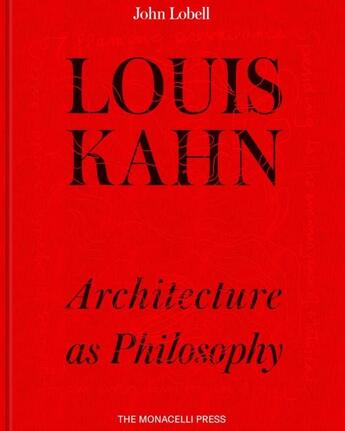Résumé:
For everyone interested in the enduring appeal of Louis Kahn, this book demonstrates that a close look at how Kahn put his buildings together will reveal a deeply felt philosophy. Louis I. Kahn is one of the most influential and poetic architects of the twentieth century, a figure whose appeal... Voir plus
For everyone interested in the enduring appeal of Louis Kahn, this book demonstrates that a close look at how Kahn put his buildings together will reveal a deeply felt philosophy. Louis I. Kahn is one of the most influential and poetic architects of the twentieth century, a figure whose appeal extends beyond the realm of specialists. In this book, noted Kahn expert John Lobell explores how Kahn's focus on structure, respect for materials, clarity of program, and reverence for details come together to manifest an overall philosophy. Kahn's work clearly conveys a kind of "transcendent rootedness"--a rootedness in the fundamentals of architecture that also asks soaring questions about our experience of light and space, and even how we fit into the world. In Louis Kahn: The Philosophy of Architecture, John Lobell seeks to reveal how Kahn's buildings speak to grand humanistic concerns. Through examinations of five of Kahn's great buildings--the Richards Medical Research Building in Philadelphia; the Salk Institute for Biological Studies in La Jolla; the Phillips Exeter Academy Library in New Hampshire; the Kimbell Art Museum in Fort Worth; and the Yale Center for British Art in New Haven--Lobell presents a clear but detailed look at how the way these buildings are put together presents Kahn's philosophy, including how Kahn wishes us to experience them. An architecture book that touches on topics that addresses the universal human interests of consciousness and creativity, Louis Kahn: The Philosophy of Architecture helps us understand our place and the nature of well-being in the built environment.
Donner votre avis














